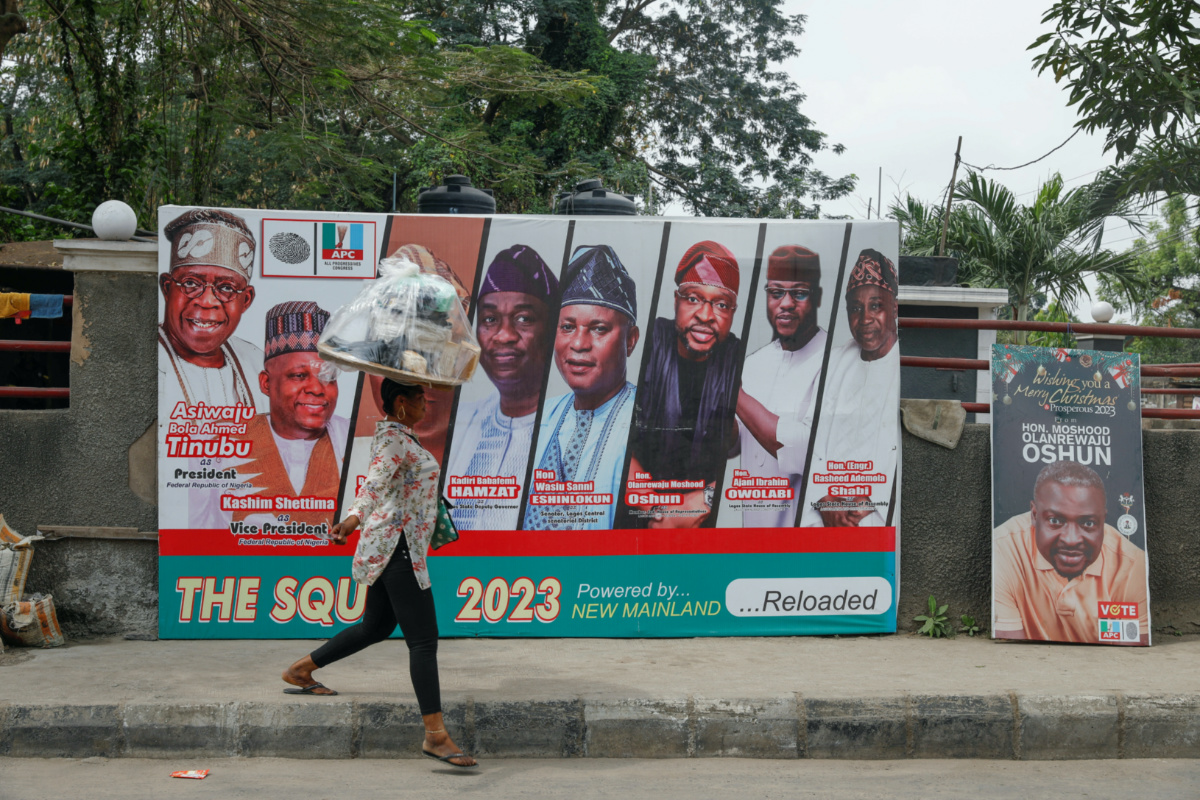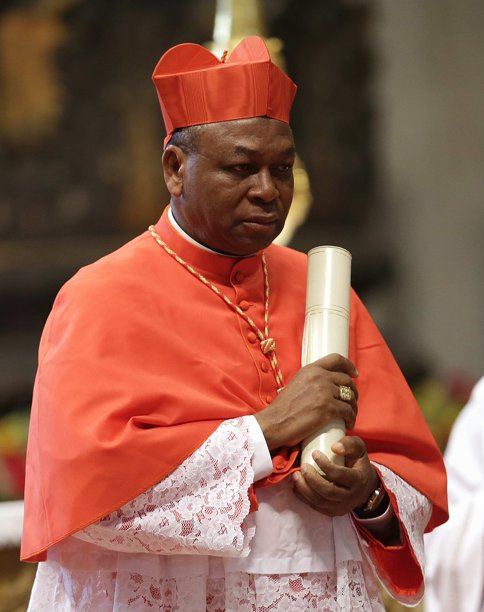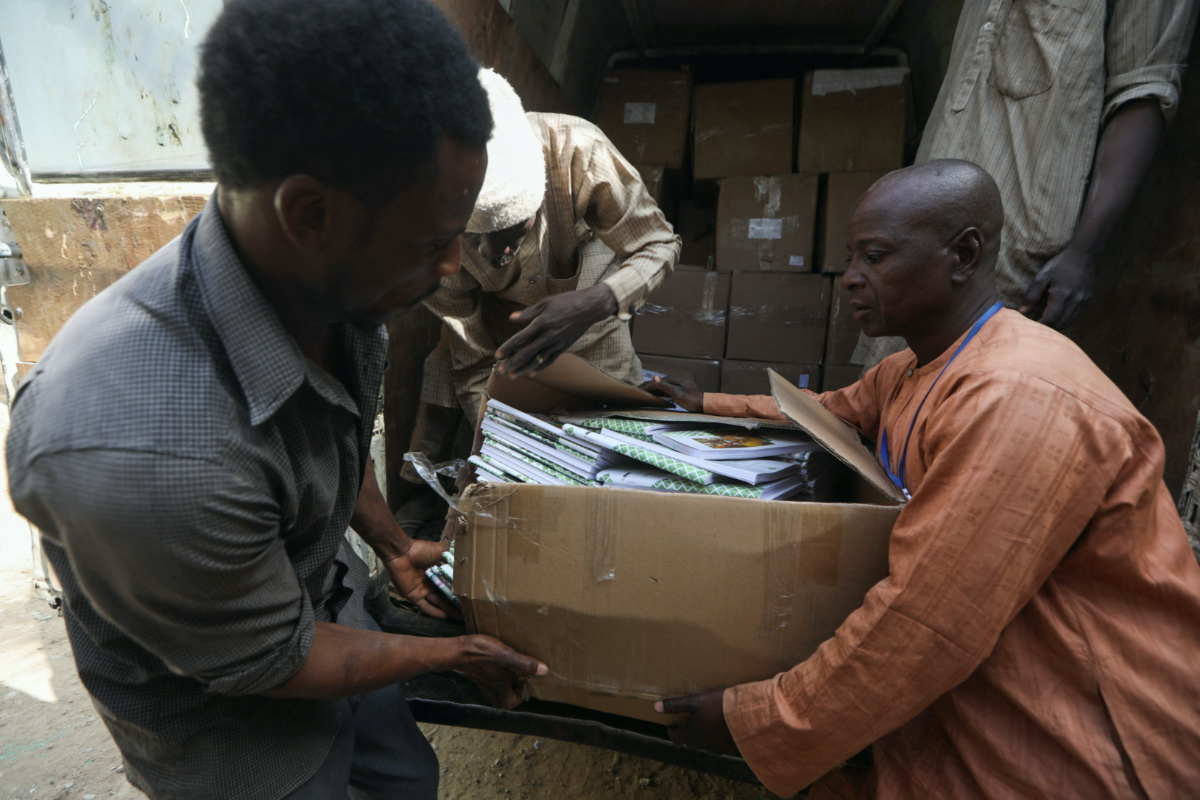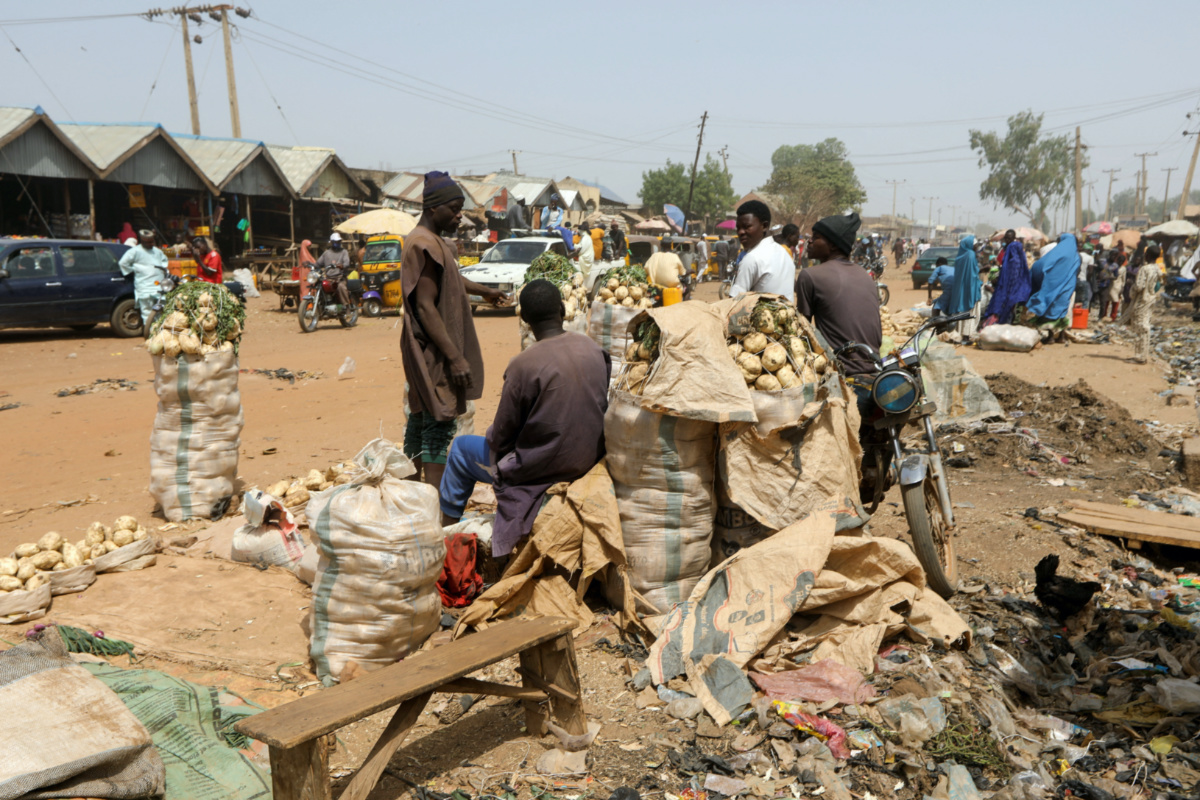
TONNY ONYULO reports on calls for a peaceful election in Nigeria this weekend…
Nairobi, Kenya
As Nigerians go to the polls on 25th February to elect a new president and lawmakers, religious leaders have intensified their campaigns to preach peace, love, and unity in their places of worship and other gatherings in a bid to achieve a peaceful general election.
“We have been encouraged by religious leaders in churches, funerals, and even in our places of work to maintain peace during elections,” 35-year-old Grace Chukwu tells Sight on the phone from Abuja, the capital city of Nigeria. “Their peace messages encourage people to remain united regardless of their tribe and religion. There is no need to hate each other because of elections. Elections come and go, but our country remains.”
The mother of four, who owns a grocery shop, said the upcoming elections had been expected to be marred by violence due to the current security situation in the country, where Islamic extremist groups continue to kill and kidnap Christian communities and people fighting for the little resources such as oil and grazing land.
“We now expect the elections to be peaceful because of the work the religious leaders have done to sensitise the population on maintaining peace,” she notes.

A woman hawks bread past electoral campaign posters, ahead of Nigeria’s Presidential elections, in Lagos, Nigeria, on 31st January, 2023. PICTURE: Reuters/Temilade Adelaja
The West African nation of more than 213 million people has been in conflict for almost a decade. In the north-east, Boko Haram Islamist extremists have killed and maimed civilians, religious leaders, and local police and destroyed busy markets and villages.
Additionally, there is long-running discontent and militancy in the Niger Delta between foreign oil corporations and a number of the minority ethnic groups who feel they are being exploited, increasing conflict between herders and farming communities in north-central Nigeria over grazing land, and the resurgence of Biafra separatism in south-east Nigeria.
“I don’t think most of us here will vote. We live in constant fear of attacks after our camp was shut down and forced to return to our homes, which are not safe at all.”
– Stanley Ike
The violence has displaced more than three million people from their homes to refugee camps across the country. Thousands of people have been killed in the violence, including in an incident in which at least 80 people, including women and children, lost their lives after gunmen attacked a Catholic church during Mass in south-west Nigeria.
Religious leaders have been calling on the government during their peace campaigns to ensure security is provided in areas that are unsafe to allow residents to go and elect leaders of their choice.
Many Nigerians living in areas that are not safe are worried that they might not take part in the presidential elections pitting the ruling party’s candidate Bola Tinubu of the All Progressives Congress, and the main opposition candidate Atiku Abubakar of the People’s Democratic Party.

Cardinal John Onaiyekan, the Archbishop Emeritus of Abuja Archdiocese, Nigeria. PICTURE: Catholic Archdiocese of Abuja.
“I don’t think most of us here will vote. We live in constant fear of attacks after our camp was shut down and forced to return to our homes, which are not safe at all,” says Stanley Ike, referring to the Bakassi camp for internally displaced persons in Maiduguri city in north-eastern Nigeria, which was closed in November, 2021.
“We demand that the government provides us with enough security to ensure we participate in the elections like other citizens in other parts of the country.”
Cardinal John Onaiyekan, the Archbishop Emeritus of Abuja Archdiocese, Nigeria, laments the killings, kidnappings and polarization going on in different parts of the country due to religious conflict or sectarian violence, especially between the Muslims and Christians.
Onaiyekan urges Nigerians to embrace peace and tolerate one another ahead of elections and beyond, saying the elections should bring Nigerians together to ensure the peaceful co-existence of Christians, Muslims, Traditionalists and members of other religions.
“Let us not accept religion to divide us because we all belong to God,” says Onaiyekan, who served as an Archbishop of Abuja from 1994 to 2019 before being made a cardinal in 2012. “Remember that whether you are a Muslim or Christian, we were all created in the image of God, and we should love each other. Let’s instead allow religion to unite us before, during and after the election. The only way to ensure we live peacefully as a country is to respect people of different faiths and ethnicities.”

Workers offload electoral materials from a vehicle at Independent National Electoral Comission premises, prior to the Nigerian presidential elections, in Gusau, Zamfara, Nigeria, on 9th February, 2023. PICTURE: Reuters/Temilade Adelaja
Community Life Project, one of Nigeria’s leading civil society organisations that promotes inclusive civic engagement, voice, and agency of disadvantaged grassroots communities, has been empowering religious leaders across the country with civic and voter education to ensure a peaceful poll.
Rev Babarinde Kehinde, the trainer, says it is important for religious leaders to be empowered with electoral information so that they can share the same with their congregants in their places of worship. He believes civic and voter education helps citizens make informed decisions and understand their electoral rights, political system, and candidates participating in the contest and adds that it also ensures the voter avoids mistakes in the voting booth, such as voting for the wrong candidate.
“The program aims to educate religious leaders, to be honest in their election reporting,” says Kehinde, noting that his organisation has educated hundreds of religious leaders from different denominations.
“They are independent citizens observing the election to ensure things are done in the right way, and they are to report accurately. We also urge religious leaders in churches and mosques to educate the population on the peaceful electioneering process.”
Pastor Emmanuel Nwachukwu, of the Gospel of Christ Church in Abuja, says the church has been carrying out civic and voter education at Mass, through road shows, door-to-door and radio messages to help citizens to understand their voting rights and responsibilities.
“We are educating our people to choose good leaders based on their work performance who will transform their lives,” said pastor Nwachukwu. “We don’t want politicians to promise our people many things they can’t fulfill just because they want to win an election. We are telling people not to choose tribe, religion, or colour. We are also reminding them to maintain peace as they choose the leaders of their choice.

People stand in a market in Gusau, Zamfara, Nigeria, on 8th February, 2023. PICTURE: Reuters/Temilade Adelaja
The Interfaith Dialogue Forum for Peace, a faith-based organisation comprising 120 Christian and Muslim leaders across Nigeria, said the country has for decades faced a lot of security crises from kidnapping to extremist insurgencies and called on political leaders and citizens to save the country from collapsing due to more violence and crime that has engulfed almost every corner of the country.
Bishop Sunday Onuoha, the organisation’s co-chairman, urges politicians to talk to their supporters to maintain peace and embrace each other during this electioneering period to avoid more violence that has left thousands of innocent people dead.
We rely on our readers to fund Sight's work - become a financial supporter today!
For more information, head to our Subscriber's page.
“We cannot allow more violence because this country has already faced many issues threatening its peaceful coexistence,” says Onuoha, who is also the founder of Vision Africa International, which focuses on building networks of faith communities in Nigeria.
“We urge leaders to preach peace while campaigning and urge their supporters to stop the spread of division and promote unity and peace.”
On his part, Alhaji Sanni-Ishaq, the organisation’s co-chairman, warns Nigerians against not keeping the peace during this election season, noting that more violence will cripple the country’s development.
“We need peace at this time because this is our country, and we want to stay in a peaceful country,” says Ishaq, who is also the chairman of the Muslim Community of Oyo State in south-western Nigeria. “People should desist from violence, discrimination, and hatred while campaigning because this will bring violence to the country, and we will all suffer.”






